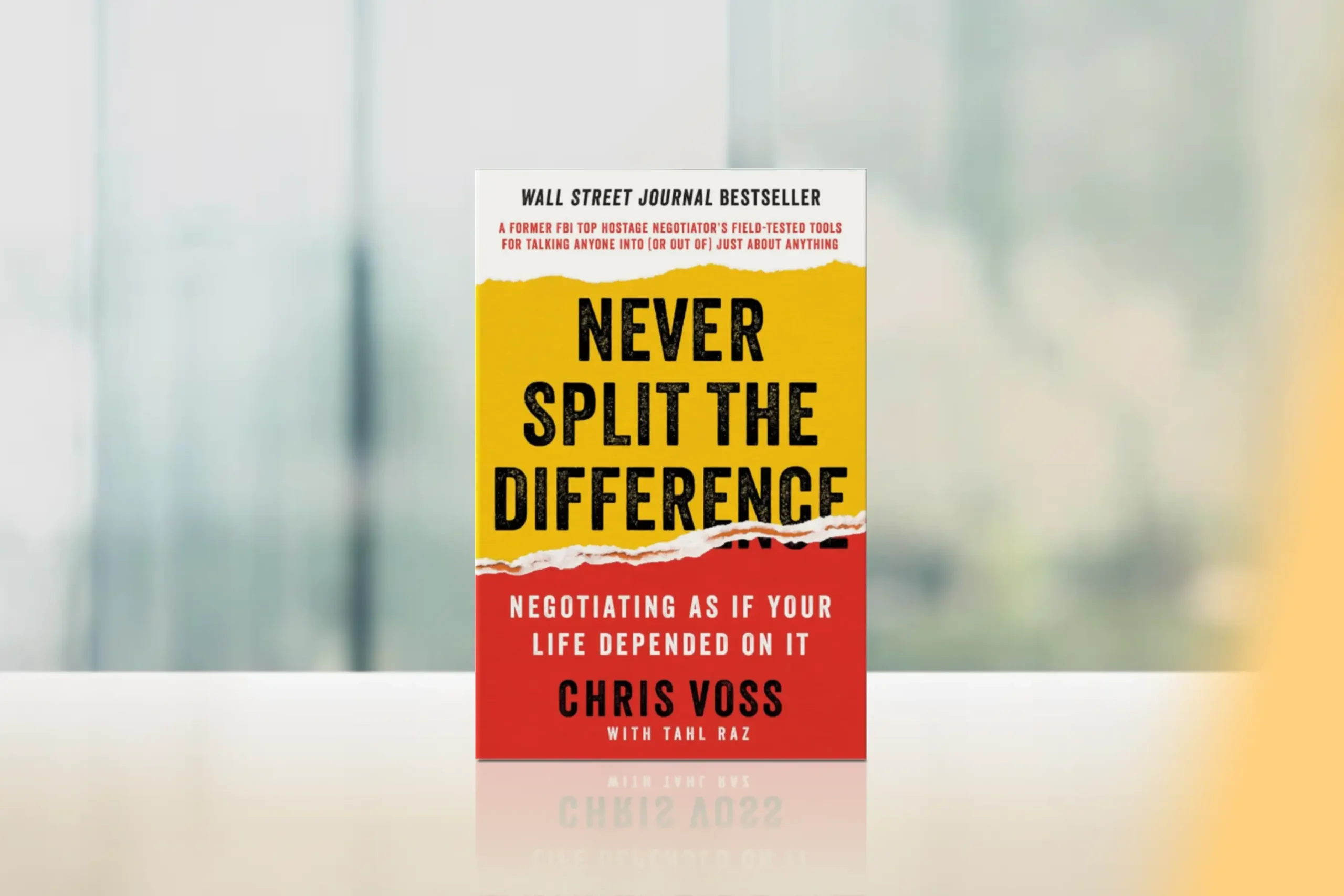Remember the last time Monday morning felt exciting rather than exhausting? That feeling isn’t luck—it comes when your work aligns with who you truly are. Only 20% of professionals feel passionate about their jobs, but those who do enjoy higher satisfaction and wellbeing. The key is alignment, not a ‘perfect job.’
Inside this article:
TL;DR
Career passion isn’t about finding a perfect job—it’s about aligning your work with your values, strengths, and interests. Only 1 in 5 professionals feel truly passionate about what they do, but those who do report far greater satisfaction and wellbeing. This guide helps you uncover what drives you, explore new paths, and take practical steps toward more meaningful work — whether you’re starting out, changing careers, or simply craving more purpose.

1. Why Career Passion Matters
Before we dive into the discovery process, let’s explore why career passion is worth pursuing—and what makes it so transformative.
The Real Effects of Loving Your Work
Research shows that people engaged in passion-aligned work experience:
- 47% higher job satisfaction compared to those just “getting by” (Source)
- 33% lower stress levels even when working long hours (Source)
- Greater resilience when facing professional challenges (Source)
- Improved overall life satisfaction that extends beyond work (Source)
- Better physical health outcomes, including lower blood pressure and better sleep quality (Source)
Yet only 1 in 5 professionals feel genuinely passionate about their work. Those who do report dramatically better outcomes across nearly every measure of wellbeing and success.
Understanding why career passion matters helps approach the discovery journey with appropriate commitment. For deeper insights into how purpose shapes overall life satisfaction, explore The Role of Purpose in Achieving Long-Term Happiness.
The Long-Term Benefits
Professionals who align their careers with their passions:
- Stay in their roles 3x longer (reducing costly career restarts)
- Advance faster due to higher engagement and initiative
- Report better work-life integration (not balance, but harmony)
- Build stronger professional networks through authentic connection
Here’s what to expect as you build a passion-aligned career over time.
| Timeframe | Typical Benefits |
|---|---|
| First 3 months | Increased daily energy, improved mood, renewed curiosity |
| 6-12 months | Accelerated skill development, expanded network, visible performance improvements |
| 1-3 years | Career advancement opportunities, recognized expertise, sustainable engagement |
| 5+ years | Significant impact in field, deep fulfillment, potential for innovation/leadership |
Key Takeaways: Few professionals feel genuinely passionate about their work, yet those who do experience significantly higher job satisfaction, lower stress levels, greater career longevity, and faster professional advancement.

2. What Career Passion Really Means
Career passion is more than enjoying your job or being good at what you do. It’s a deep sense of purpose and fulfillment from engaging in work that aligns with your values, utilizes your strengths, and contributes beyond a paycheck.
Understanding Jobs, Careers, and Your Callings
Here’s how different types of work compare across key dimensions.
| Aspect | Job | Career | Calling |
|---|---|---|---|
| Main Motivation | Money, stability | Growth, success | Purpose, meaning |
| Emotional Tie | Transactional | Professional pride | Personal fulfillment |
| Time Outlook | Short-term need | Long-term plan | Lifetime mission |
| Self-View | “What I do for money” | “My career path” | “Who I am” |
| Resilience | Low challenge tolerance | Moderate persistence | Strong perseverance |
Common Myths About Career Passion
Here’s what people often get wrong about finding career passion—and what’s actually true.
| Common Myth | Reality |
|---|---|
| You must have one true passion | Many people mix different interests in unique ways |
| Passion should feel easy | Even what you love takes effort and includes challenges |
| Turn your hobby into your job | Keeping hobbies separate can help them stay enjoyable |
| Everything works out once you find it | Finding passion is just the start—you’ll still face challenges |
| You’ll recognize it right away | Passion usually grows slowly through exploration |
| Only creative jobs involve passion | Any field can inspire passion and meaning |
Research on career transitions shows that people who successfully align their work with their passion report that the journey itself—with all its uncertainty and exploration—taught them more about themselves than the destination.
To deepen your understanding of career passion and its impact on your life, explore the connection between purpose and personal values: The Connection Between Purpose and Personal Values
Key Takeaways: Career passion requires values alignment, strength utilization, and meaningful contribution—moving from transactional jobs to purpose-driven callings through gradual exploration rather than instant discovery.

3. How to Discover Your Career Passion
Now let’s explore how to discover your career passion through deep self-reflection and honest exploration.
Contrary to popular belief, career passion isn’t usually “found” like hidden treasure. It’s more often cultivated through deliberate investigation of who you are and what matters to you.
Self-Discovery Framework
1. Assess Your Values
Your values guide your decisions and shape what matters to you. Yet 68% of professionals have never explicitly identified their top five work values. Ask yourself:
- What matters most to me in life?
- What kind of impact do I want to have?
- What ethical principles are non-negotiable in a work setting?
- When have I felt most proud of my work—and why?
2. Identify Your Strengths
Your natural talents are clues to potential passion areas. Consider:
- What skills come easily to you that others struggle with?
- What do people consistently ask for your help with?
- In what areas do you consistently perform well without exhausting effort?
3. Explore Your Interests
Your genuine curiosities point toward potential career passions:
- What topics do you enjoy learning about in your free time?
- What sections of a bookstore or news website do you gravitate toward?
- What problems frustrate you enough that you want to help solve them?
| Motivation | Traits | Best Career Fit |
|---|---|---|
| Autonomy | Likes independence and self-direction | Entrepreneurship, remote work, consulting |
| Mastery | Wants to improve and excel continually | Specialized fields, technical roles, craftsmanship |
| Purpose | Focuses on contribution and meaning | Non-profits, social enterprises, mission-driven work |
| Connection | Values teamwork and relationships | Team-based roles, management, community work |
| Security | Prefers stability and predictability | Established companies, regulated industries |
| Variety | Seeks new challenges and diversity | Project-based work, cross-functional roles, startups |
4. Recognize Your Motivation Factors
Understanding what drives you reveals what you’ll sustain long-term:
- What gives you genuine accomplishment?
- What work environments energize you?
- Are you driven by autonomy, mastery, purpose, or connection?
Here’s how different motivation types align with specific career environments.
5. Understand Your Personality
Consider taking Myers-Briggs Type Indicator, Big Five Personality Test, or Enneagram assessments.
But here’s where conventional wisdom gets interesting: while these tools provide valuable insights, people often overemphasize personality “fit” and underestimate how much they can adapt and grow. Your personality suggests tendencies, not limitations. For comprehensive guidance on personality assessments and self-discovery tools, see Self-Discovery: Personality Tests and Tools to Learn More About Yourself.
6. Reflection and Journaling
Harvard Business Review-linked study revealed that people engaged in daily reflection—including journaling—improved their performance by approximately 23%, underscoring how short, consistent journaling sessions aid professional growth. Try these prompts:
- Describe your ideal day from start to finish, what impact are you having?
- If money were no object, what would you choose to do with your time?
- What were you doing the last time you thought, “I could do this forever”?
Understanding Patterns
Discovering your career passion isn’t about analyzing each element separately—it’s about recognizing patterns across all these dimensions. When the same themes emerge from values, strengths, interests, and motivations, that signals meaningful alignment.
Author Sir Ken Robinson calls this intersection “The Element“—the point where natural aptitude meets personal passion. In his research on how people find fulfilling work, Robinson found that those who discover their Element often describe it as a moment when everything clicks into place, not because they found something easy, but because they found something worth the effort.
Learn about innovative techniques for uncovering your hidden talents: Unconventional Methods for Discovering Your Career Passion.
Key Takeaways: Career passion is cultivated through deliberate exploration across seven areas: identifying your core values, recognizing your natural strengths, exploring genuine interests, understanding what motivates you, learning about your personality tendencies, regular reflection and journaling, and recognizing patterns across all these dimensions.

4. Exploring Career Paths That Fit You
Once you’ve gained deeper understanding of yourself through the discovery process, it’s time to explore how your passions, strengths, and values might translate into actual career paths.
Research shows a surprising finding: people who explore at least five different career options before making a decision report higher satisfaction three years later. The difference isn’t finding the perfect fit—it’s gaining confidence that comes from informed choice.
1. Conduct Informational Interviews
Reach out to people working in fields that interest you. Ask about their day-to-day reality, the skills they actually use, and the challenges that keep them engaged. Focus on understanding what a typical Tuesday looks like, what surprised them most about their career, what skills they use that weren’t in the job description, and what trade-offs they’ve made.
2. Job Shadow Experiences
If possible, arrange to shadow professionals in careers you’re considering. Even a half-day of shadowing teaches you more than months of research can provide.
| Interest / Strength | Obvious Career Path | Unexpected Alternatives |
|---|---|---|
| Love of storytelling | Writer, Journalist | UX Content Strategist, Museum Curator, Brand Strategist |
| Analytical thinking | Data Analyst, Accountant | Supply Chain Optimizer, Sports Analytics, Urban Planning |
| Helping others | Teacher, Counselor | Learning & Development, User Researcher, Change Management |
| Creative problem-solving | Graphic Designer, Artist | Service Design, Innovation Consultant, Escape Room Designer |
| Working with your hands | Construction, Mechanic | Surgical Technician, Food Stylist, Museum Conservator |
3. Explore Diverse Industry Sectors
Don’t limit yourself to obvious paths. Sometimes, passion emerges in unexpected places. Your skills and interests can lead to careers beyond the obvious choices.
4. Launch Side Projects
Start a blog, volunteer for causes you care about, or take on freelance work in areas that interest you. These experiments help you test possibilities without risking your current stability.
5. Strategic Volunteering
Volunteering not only contributes to causes you value but also provides opportunities to develop new skills and explore different work environments without long-term commitment. Consider volunteering as:
- A board member for small organizations (tests strategic thinking)
- Community festival organizer (project management)
- Workshop facilitator (teaching skills)
- Social media manager for charities (content creation)
- Hospital volunteer (patient interaction)
Discovery Timeline
Career psychologists recommend spending 6-12 months in active exploration before making major career changes. Not because it takes that long to know, but because thorough exploration builds the confidence to commit fully. Throughout this process, track:
- Which activities energize versus drain you
- Skills you enjoy using
- Work environments where you feel most comfortable
- Any red flags that emerge
When exploring career possibilities, consider how your purpose might evolve over time: Purpose in Different Stages of Life: Adjusting as You Grow.
Key Takeaways: Exploring multiple career options before making a decision leads to much higher long-term satisfaction. Career psychologists recommend extended active exploration through informational interviews, job shadowing, side projects, and strategic volunteering to build the confidence needed for informed career decisions.

5. Overcoming Career Doubts and Setbacks
The journey to discovering career passion isn’t all inspiring epiphanies and smooth transitions. Obstacles, doubt, and uncertainty are inevitable—but navigating them successfully is what separates those who find fulfilling work from those who stay stuck.
Many people find this stage particularly challenging. Potentially disrupting comfortable patterns while facing unknowns can feel overwhelming. Yet research shows that people who push through this uncertainty stage report it as the most transformative period of their career journey.
1. Embracing Uncertainty
Feeling anxious when exploring new possibilities is normal. Uncertainty isn’t a sign of doing something wrong—it’s evidence of growth. Focus on taking small, manageable steps rather than trying to map the entire journey.
Psychologist Carol Dweck’s research on mindset reveals why this matters: people with a “growth mindset” view uncertainty and challenges as opportunities to develop, while those with a “fixed mindset” see them as threats to their identity. During career transitions, adopting a growth mindset—believing that abilities and paths can be developed through effort—significantly increases the likelihood of successful outcomes.
Shift your mindset from unhelpful to strategic responses.
| Challenge | Unhelpful Response | Strategic Response |
|---|---|---|
| Feeling overwhelmed | “I need to figure everything out now” | “What’s one small step I can take today?” |
| Fear of making the wrong choice | Paralysis by analysis | “What can I learn from trying this?” |
| Comparing to others’ certainty | Feeling behind or inadequate | “Everyone’s timeline is different” |
| Multiple interests pulling you | Forcing choice between them | “How might I combine these?” |
2. Managing External Expectations
Sometimes societal or family expectations conflict with emerging career passion. While it’s important to consider advice from others, ultimately make decisions based on what genuinely resonates. You can:
- Acknowledge others’ concerns without letting them dictate the path
- Share research and reasoning to help others understand
- Find a support circle of people who believe in the journey
3. Balancing Passion and Practicality
Pursuing passion matters, but so do practical factors like income and market demand. Look for ways to balance both:
- Build toward passion gradually while maintaining income
- Find adjacent roles that combine passion elements with market demand
- Identify skills that bridge current role to desired direction
- Negotiate hybrid arrangements in current positions
4. Navigating Career Transitions
Changing careers can feel daunting, especially after investing significant time in a current field. Research shows that career changers often outperform those who stayed in one field. Past experiences aren’t wasted—they’re assets. Focus on how existing skills transfer to new paths.
For practical guidance on making the leap, explore How to Transition Careers: Steps to Pivot Without Fear and Emotional Resilience: Navigating the Psychological Challenges of Career Change.
5. Overcoming Fear of Failure
Fear of failing can paralyze pursuit of passion. Research shows that people who make career changes and encounter setbacks actually develop more resilience and self-knowledge than those who play it safe. Reframe failure as data collection—every experience provides valuable insights guiding toward better fit.
Understanding the psychological roots of fear can help overcome it—explore The Science of Fear: Understanding Your Brain’s Response to Threats for deeper insights. If self-doubt is holding you back, Overcoming Imposter Syndrome in Your Professional Life provides strategies for building confidence during career transitions.
Key Takeaways: Navigate career transition challenges by embracing uncertainty as growth evidence, balancing passion with practicality through bridge strategies, and recognizing that career changers often outperform single-field professionals due to diverse perspectives.

6. Aligning Your Career with Your Passion
Once you’ve identified potential career paths that align with your passion, it’s time to move from exploration to action.
1. Set Clear, Compelling Goals
People who set both outcome goals (“land a role in sustainable business”) and process goals (“connect with three professionals monthly”) are more likely to achieve their career objectives. Different goal types serve different purposes in your transition.
| Goal Type | Purpose | Example |
|---|---|---|
| Vision Goal (1-3 years) | Provides direction | “Transition into environmental advocacy” |
| Milestone Goal (3-12 months) | Creates checkpoints | “Complete certificate in sustainability; secure 10 informational interviews” |
| Process Goal (Weekly/monthly) | Builds momentum | “Apply to 2 relevant positions weekly; attend 1 industry event monthly” |
| Learning Goal | Develops capability | “Master technical software; understand policy development” |
For comprehensive guidance on setting and achieving career goals, see How to Set Career Goals and Stick to Them.
2. Create an Action Plan
Break down your goals into concrete steps. Structure your first 90 days around four phases:
- Foundation building (skills gap analysis, networking setup, initial learning)
- Active learning (informational interviews, industry events, profile updates)
- Experimentation (relevant projects, portfolio development)
- Strategic pursuit (applications, mentorship, progress evaluation)
For deeper guidance on translating inspiration into concrete results, explore Turning Inspiration Into Action: How to Achieve Your Goals and The Art of Effective Goal Setting and Achievement.
3. Build Relevant Skills
Identify key capabilities required for your desired path and actively develop them. Options include:
- Online courses (Coursera, Udemy) for foundational knowledge (4-12 weeks, $-$$)
- Certifications to build credibility in new fields (3-12 months, $$-$$$)
- Bootcamps for intensive career transitions (8-24 weeks, $$$-$$$$)
- Workshops and conferences for networking plus learning (1-3 days, $$-$$$)
- Books and podcasts for ongoing self-directed exploration (flexible, $)
- Mentorship for personalized guidance (6-12 months, $-$$$)
- Volunteer projects for real-world experience (flexible timeline, time investment)
4. Network Strategically
Build connections with people in your desired field. The most valuable networking happens when you lead with genuine curiosity and offers to help, rather than asking for favors. Focus on:
- Building genuine connections rather than collecting business cards
- Offering help before seeking it
- Selecting relevant opportunities rather than attending every event
- Personalizing outreach instead of generic requests
- Nurturing ongoing relationships rather than one-time interactions
5. Develop Your Personal Brand
Craft a personal brand that showcases your passion and unique value proposition. Build a cohesive professional presence through:
- Your narrative (why this career path matters)
- Visual identity (professional photos, consistent colors/fonts)
- Portfolio (work samples, case studies, projects)
- Testimonials (recommendations from colleagues and mentors)
- Thought leadership (blog posts, articles, social media insights)
- Online presence (LinkedIn, personal website, professional profiles)
For step-by-step guidance on building your professional presence, explore Building Your Personal Brand: From LinkedIn to Thought Leadership and Personal Branding: How to Stand Out in Your Industry.
Key Takeaways: Setting both outcome and process goals increases success by 76%; break transitions into 90-day action plans while consistent weekly action creates 3-5 unexpected opportunities on average.

7. Keeping Your Career Passion Alive
Finding career passion is just the beginning. To maintain long-term fulfillment, actively nurture and evolve that passion over time.
Studies show that even people in passion-aligned careers report engagement dips approximately every 18-24 months. The difference between those who sustain passion and those who burn out isn’t the absence of challenges—it’s how they respond when passion wanes.
1. Commit to Continuous Learning
Professionals who dedicate just 5 hours per week to deliberate learning report 37% higher career satisfaction. This includes:
- Attending conferences
- Reading industry publications
- Seeking challenging projects
- Teaching others—which deepens personal mastery
Continuous learning is a cornerstone of long-term career success—explore The Power of Lifelong Learning: Strategies for Continuous Growth and The Importance of Continuous Learning in Career Development for comprehensive strategies.
2. Build Your Mentorship Network
The most valuable mentorship comes from multiple people contributing different perspectives:
- Career navigators who guide strategic decisions
- Skills coaches who develop specific capabilities
- Peer mentors who provide mutual support
- Sponsors who open doors
- Reverse mentors who share fresh perspectives
3. Embrace Challenges as Growth
View obstacles as opportunities rather than threats. Tackling difficult projects can deepen expertise and reignite passion settling into routine. When work that once challenged becomes easy, it’s time to level up, not question passion.
Psychologist Angela Duckworth’s research on “grit” reveals that sustained passion isn’t about constant enthusiasm—it’s about passion combined with perseverance. In her studies of high achievers across fields, Duckworth found that grit (the ability to maintain passion and effort toward long-term goals) was a better predictor of success than talent alone. The key is deliberately seeking challenges that stretch capabilities while staying connected to why the work matters.
4. Maintain Work-Life Integration
While being passionate about work is valuable, nurture other life aspects too. Focus on energy management over time management:
- Track what energizes versus drains
- Protect time for relationships and health
- Build renewal practices into weekly rhythms
Burnout can diminish even the strongest passion. For practical strategies on balancing professional ambition with personal wellbeing, see Work-Life Balance: Balancing Ambition with Personal Wellbeing and Managing Career Burnout: Prevention and Recovery.
5. Regularly Reassess and Evolve
Passions and goals evolve naturally over time. Conduct annual career passion audits asking:
- What aspects of work most energize me now?
- Where am I growing versus stagnating?
- How aligned is my role with core values?
Be open to seeking new responsibilities, exploring adjacent moves, or developing new skills. Maintaining motivation throughout career transitions requires intentional practices—discover strategies in Staying Motivated When Pursuing a New Career Path.
6. Give Back and Pay It Forward
Mentoring, teaching, or sharing knowledge not only helps others but deepens personal understanding and reignites purpose.
Obsessive vs. Harmonious Passion
Research shows that having too much passion—”obsessive passion”—can lead to burnout and poor boundaries. The key is cultivating “harmonious passion”—deep engagement that enhances rather than consumes life.
- Harmonious passion allows disengagement when needed, remains flexible, and enhances relationships
- Obsessive passion dominates life, struggles to turn off, and strains connections
Understanding the impact of non-verbal communication can significantly boost your confidence. Explore this topic further in the following article: The Psychology of Body Language: Boost Your Confidence Through Posture
Key Takeaways: Even passion-aligned careers experience natural engagement fluctuations. Sustaining long-term passion requires ongoing investment in learning, building diverse mentorship networks, embracing challenges as growth opportunities, and cultivating harmonious rather than obsessive passion. Regular career passion audits, thoughtful work-life integration through energy management, and giving back through mentoring help ensure continued alignment as you evolve.
8. Inspiring Stories of Career Passion
Real stories illuminate the diverse paths to career passion. These inspirational journeys show how 3 people who navigated uncertainty, overcame obstacles, and found work that resonates with who they are.
Three Stories of How People Found Work That Matters

Sarah

Michael

Elena
Sarah: From Accounting to Sustainable Fashion
After five years at a prestigious accounting firm, Sarah felt increasingly unfulfilled despite external success. A weekend volunteering at a clothing swap event sparked her first genuine excitement in years—she spent hours researching sustainable fashion that evening, discovering where her financial skills could meet her passion for environmental impact.
Sarah’s Transition Path:
- Started sustainable fashion blog as side project (6 months)
- Took online courses in design and sustainable business (9 months)
- Launched small clothing line while working full-time (1 year)
- Made full leap when revenue reached 75% of salary (18 months total)
Today, Sarah runs a successful sustainable clothing brand, combining her financial acumen with her passion for eco-friendly fashion.
Sarah’s Key Lesson: “The choice wasn’t between financial security and passion. Financial skills became assets for building the career she desired. ‘Serious career’ skills aren’t traps—they’re transition assets.”
Michael: From Teaching to Tech Education
Michael loved teaching for over a decade but felt increasingly frustrated with rigid curriculum and administrative burdens overshadowing the joy. While helping his son with coding homework one evening, he discovered an online learning platform with brilliantly designed tutorials—sparking his first curiosity about education itself in years.
Michael’s Transition Path:
- Learned instructional design principles online (3 months)
- Created sample online course in spare time (4 months)
- Attended ed-tech conference, made key connections (pivotal moment)
- Consulted for ed-tech startup on weekends (6 months)
- Secured full-time position at learning technology company (14 months total)
Now Michael develops interactive online courses for a leading ed-tech company, using his teaching expertise while satisfying his interest in technology and reaching students globally.
Michael’s Key Lesson: “His core passion wasn’t wrong, he just needed a different environment. Sometimes our core passions might express themselves differently than initially imagined.”
Elena: From Corporate Law to Environmental Advocacy
Elena thrived initially at a corporate law firm but grew increasingly uncomfortable as her work often benefited corporations at environmental expense. After successfully defending a corporation against environmental regulations and going home feeling physically ill, she decided to make a change.
Elena’s Transition Path:
- Volunteered with environmental non-profit alongside day job (4 months)
- Connected with environmental lawyers through informational interviews (6 months)
- Took 20% pay cut to join environmental law firm (immediate switch)
- Gradually specialized in corporate environmental accountability (ongoing)
Today, Elena uses her legal expertise to advocate for stronger environmental protections and hold corporations accountable for their environmental impacts. While the work is challenging and hours can still be long, Elena feels deep fulfillment knowing her work aligns with her values.
Elena’s Key Lesson: “The hardest part wasn’t leaving corporate law—it was admitting conventional success didn’t equal fulfillment. Sometimes the bravest choice is redefining success on personal terms.”
Many professionals face similar realizations about conventional versus authentic success—for deeper exploration of this theme, see Redefining Success: Breaking Free from Societal Expectations.
Common Patterns
These stories reveal common patterns: their transitions, which took 12–24 months, were sparked by moments of emotional clarity, explored through side projects, leveraged existing skills as assets, prioritized value alignment over income, and combined established expertise with authentic passion.
For more real-life examples of individuals who have successfully aligned their careers with their passions, read: Real-Life Examples of Purpose-Driven Individuals. If you’re considering a major career shift, Career Reinvention: How to Successfully Navigate Career Change and How to Successfully Navigate a Career Change in 10 Simple Steps provide comprehensive roadmaps.
Key Takeaways: Career passion transitions typically take time and strategic planning. Successful transitions combine side exploration to reduce risk, leverage existing skills as valuable transition assets, and often involve emotional clarity moments that catalyze the hardest admission: conventional success doesn’t equal personal fulfillment.

9. How Career Passion Fuels Personal Growth
Pursuing career passion is not just about professional fulfillment—it’s a powerful catalyst for personal growth and transformation.
1. Developing Resilience
Passion gives the strength to persist through challenges and setbacks. When setbacks occur, a deeper sense of purpose provides the motivation to continue. This resilience extends beyond work, helping navigate personal challenges with greater confidence. Learn strategies for bouncing back stronger in Building Resilience: Bouncing Back from Life’s Challenges.
2. Cultivating a Growth Mindset
People are more motivated to learn and improve when passionate about their work. Challenges become opportunities rather than threats. Feedback transforms from criticism to valuable data, and others’ success becomes inspiration rather than competition. For comprehensive guidance on developing this mindset, explore Growth Mindset: How to Develop a Mindset for Success and Resilience and Cultivating a Growth Mindset: Transforming Challenges into Opportunities.
3. Improving Work-Life Integration
When work aligns with values, it becomes a natural extension of identity, leading to a more harmonious life overall. The boundaries blur in healthy ways—not because of overwork, but because work genuinely enriches life rather than depleting it.
4. Increasing Self-Awareness
The process of discovering and pursuing passion leads to deeper understanding of oneself—values, strengths, preferences, and growth edges. This heightened self-awareness benefits all life areas, from relationships to decision-making.
5. Making a Meaningful Impact
When passionate about work, people are more likely to go above and beyond, potentially making significant impact in their field or community. This isn’t about longer hours—it’s about bringing more creativity, energy, and innovation to contributions.
Key Takeaways: Career passion accelerates setback recovery, enhances skill acquisition, and significantly increases overall life satisfaction. Purpose and passion account for a substantial portion of overall happiness, with the influence flowing both ways—a fulfilling personal life increases the likelihood of finding career passion, and career passion enriches your entire life experience.
10. Next Steps to Pursue Your Passion
Career passion isn’t discovered in a lightning-bolt moment—it’s cultivated through intentional exploration and the courage to pursue what genuinely matters, even when uncertain.
- Your timeline is yours – comparison to others’ journeys helps no one
- Small steps count – you don’t need everything figured out to begin
- Exploration is valuable – even paths that don’t work out teach what does
- Your past isn’t wasted – every experience builds skills and insights
- Imperfect action beats perfect planning – start before feeling ready
Take that first step today: start a career journal, schedule an informational interview, sign up for a course that interests you, or simply decide that work deserves to resonate with who you are.
Your career passion journey begins now. What’s your first step?
Related articles
Work-Life Balance: Balancing Ambition with Personal Wellbeing
Succeed in your career without sacrificing your personal life and happiness.
The Power of Networking: Building Meaningful Connections for Career Success
Advance your career by creating meaningful professional relationships.
Career Reinvention: How to Successfully Navigate Career Change
Learn how to successfully change careers or advance in your current field.
How to Build a Career You Love: From Vision to Action
Turn your career dreams into reality with a step-by-step action plan.
Further reading
“Finding Your Element” by Ken Robinson
Helps readers discover their talents and career passion.
“The Alchemist” by Paulo Coelho
A novel that inspires readers to follow their dreams and find their personal legend.
“Start with Why” by Simon Sinek
Explores the importance of understanding your purpose.
“Big Magic” by Elizabeth Gilbert
Encourages readers to embrace creativity and passion in their lives and work.
“Ikigai: The Japanese Secret to a Long and Happy Life” by Hector Garcia and Francesc Miralles
Discusses the Japanese concept of finding purpose in life.





